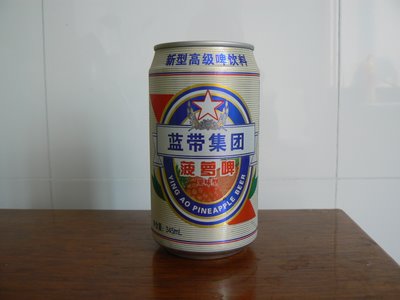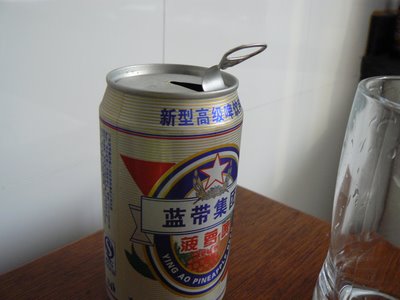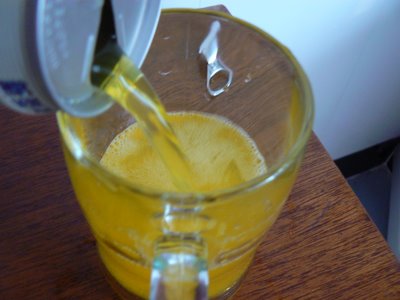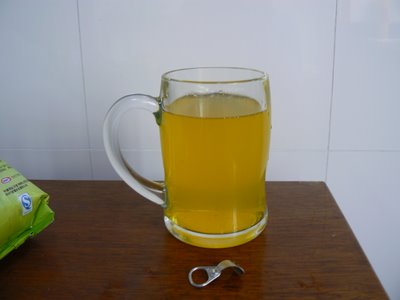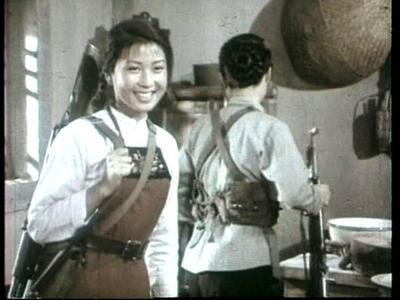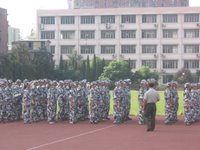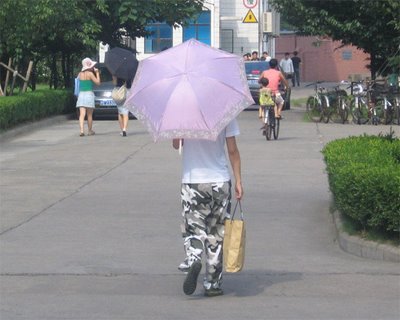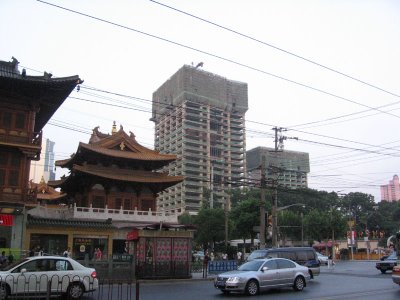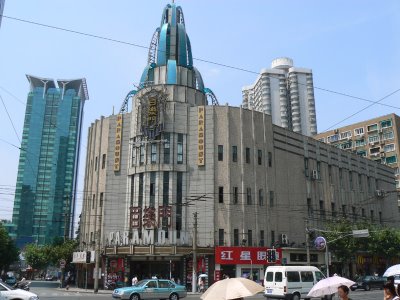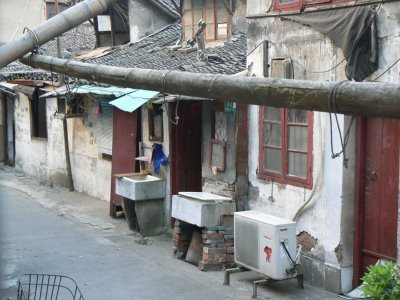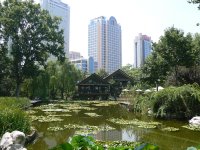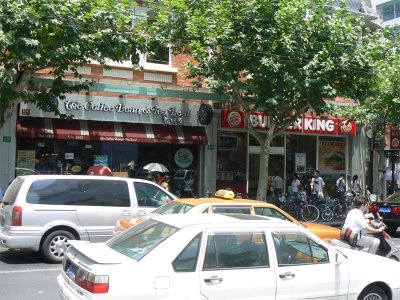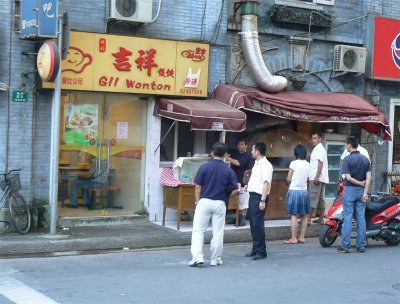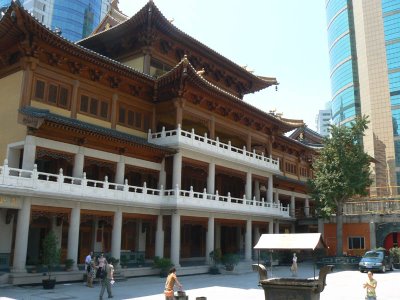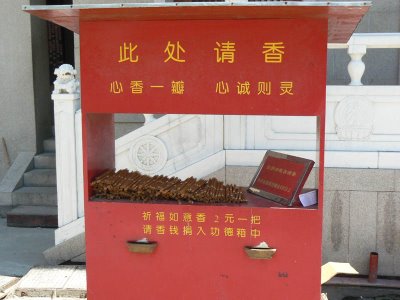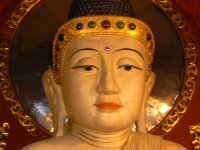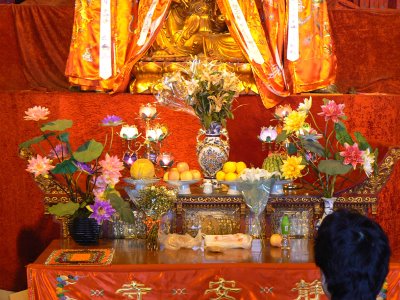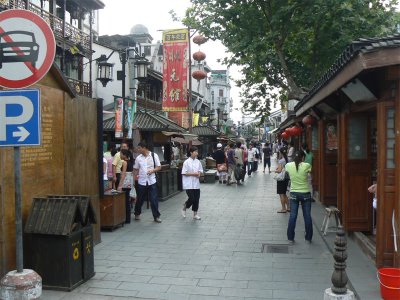
It's a turn-of-the-century looking part of Hangzhou, with a bunch of small shops aimed entirely at tourists. Still, while it certainly wasn't a highlight to the trip, I thought it was a lot cooler than the similar kitschy markets around Yuyuan Gardens, in Shanghai. Maybe because the sellers were a lot less pushy, maybe because it wasn't so over-crowded, or maybe I was just in a better mood that day.
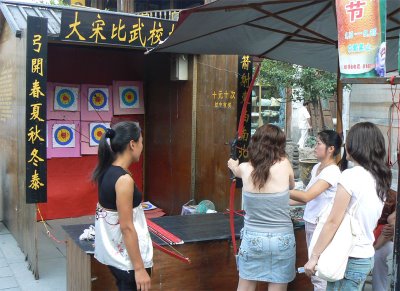
They also sold foods, Hangzhou has distinctive street foods from Shanghai. It's not a traditional choice, but I was very impressed with one variation on Tujia Minority Chinese Style Pizza, with spongy bread and higher-quality meat. Occasionally, over the buildings, I could see a large, beautiful temple on a hill. It was a little out of my way, and I didn't get to have a closer look:
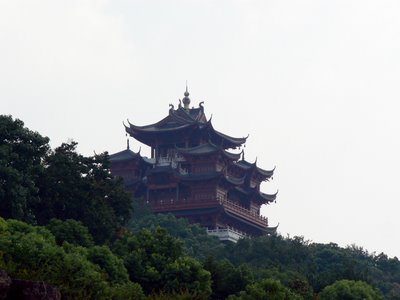
 Walking down this road directed me in the direction of Hangzhou's West Lake, which is generally considered one of the top tourist attractions of China. It's a lake ten miles around, surrounded by at least a thin strip of parkground, and oftentimes larger parks, ancient buildings, temples, pagodas, low-key (if exclusive) shopping areasm, statues, and so forth.
Walking down this road directed me in the direction of Hangzhou's West Lake, which is generally considered one of the top tourist attractions of China. It's a lake ten miles around, surrounded by at least a thin strip of parkground, and oftentimes larger parks, ancient buildings, temples, pagodas, low-key (if exclusive) shopping areasm, statues, and so forth. 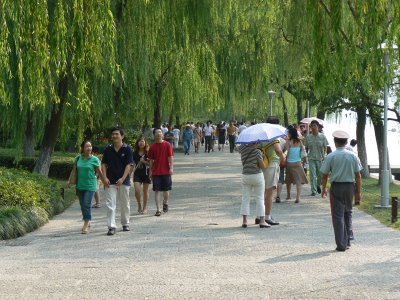
Partly the attraction of the lake is lost on me. I don't mean to say it isn't beautiful, which it certainly is. However the lake is also famous for its importance in over a thousand years of Chinese art, a subject I admit I'm pretty much completely ignorant about. My entire connection to the pavilion dedicated to Chinese poet Li Po, is a Chinese dive bar in San Francisco name "Li Po Lounge," where I once saw eXtreme Elvis. I will adress this ignorance, sometime in the indeterminate future. This golden bull is an allusion to a Chinese version of the Golden Goose story, a story I knew nothing about:
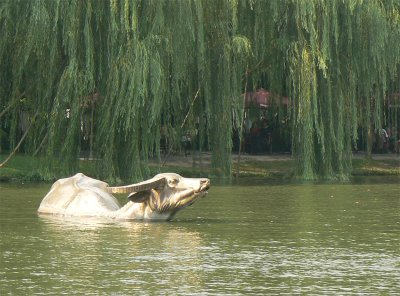
Hangzhou has more than its fair share of non-Chinese people, both tourists and locals. Still, there was a constant stream of Chinese people saying "laowai" or "waiguoren" as I passed by, meaning "foreigner" in CHinese. They generally weren't talking with other people, and they had no intent to talking with me. The reason why people say this baffles me, and also the Chinese people I ask about it. It also annoys me to no end, there is no way I could live in Hangzhou. I admit it happens in Shanghai sometimes, but very rarely, maybe once a week or so, no big deal. One short (and beautiful) bridge, and I got informed that I was a foreigner three times!
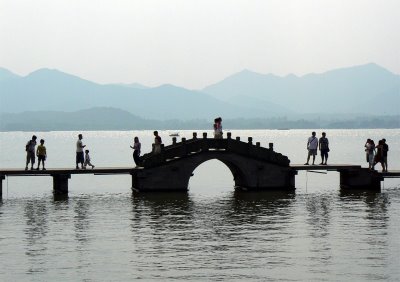
I didn't get to walk all the way across the lake, the way I would have liked. But it's a beautiful look across, even with the hazy afternoon sky. Check out the pagoda to the left, and the way the different hills all seem to have a slightly distinct color:
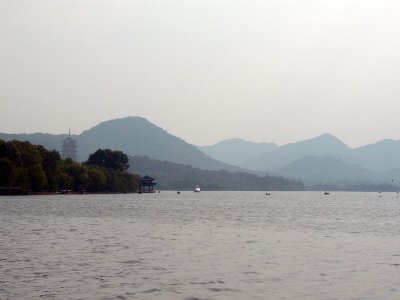
There were also some boats, both relatively small cruise boats, and old-style hand-cranked boats, which moved surprisingly fast. This isn't the most exciting of videos, but it gives a nice panorama to the lake, a look at the weird corkscrew propulsion, and at the beginning you can hear a little of a traditional Chinese-music quintet playing:
Hangzhou city has recently been growing rapidly too, as a second city to Shanghai. There's currently a maglev train being built, that will make the distance an amazing 25 minutes. Surprisingly, there's also a Ferrari Dealership, with a Maserati Dealership right next to it. The Porsche dealership is a few doors down. Honestly, I can't imagine seeing any of these cars on the city streets.

